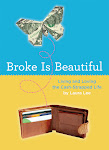"Students will enjoy Lee's concise, conversational style and the quirky
relationship she identifies between humans and the forces of
nature."-School Library Journal
Blame it on the Rain came out in 2006, the same year as
The Elvis Impersonation Kit. I was writing at quite the clip back then, it seems.
One of the great things about writing for a publisher like Harper Collins is that your work gets translated into dozens of languages and from time to time a small box of books in Japanese or Korean would arrive in my mailbox. (A number of my other titles have been published overseas as well. I usually only learn about this reality by accident, say when a reporter from South America wants to interview me.)
The episode that inspired this book was the Battle of Barnet during the British Wars of the Roses in 1471. It was a civil war with many intrigues and shifting allegiances. The shortest version of this tale is this: in the deep fog the Marquess of Montagu mistook the emblem of the Earl of Oxford's men (a star with streams) for that of Edward IV (a sun with rays). Thinking Edward's cavalry was attacking him, he ordered his archers to open fire. When Oxford's division found itself under attack by Montagu-- who was supposed to be an ally, their first assumption was that Montagu had changed loyalties mid-battle. The entire endeavor was thrown into utter confusion as no one knew for sure who was on their side and who was against them.
The episode, and the idea that history could pivot on the ability of soldiers to tell the difference between a sun with rays and a star with streams in a heavy fog, stuck with me. So a number of years later, when a publisher (not Harper Collins) asked me to write a proposal for a book on the weather, I included a chapter on how weather influenced history in the outline. The publisher that originally asked me to send a weather book proposal passed on their own idea. (This happens more often than you would think.)
I didn't want to let my work on the proposal go to waste, but I decided that there was only one part of it that really excited me-- the weather and history chapter. I expanded that small part into a full proposal and the rest is history.
It was a challenging book to research. I had to read a lot of history in the hopes that I would come across references to the effects of weather. Later The Weather Channel did a program that explored weather's impact on historical events.
Some of my favorite chapters in the book are the non-military examples, such as how the Little Ice Age might have created the sound of the Stradivarius violin, and how the dramatic sunsets in the wake of the Krakatoa volcano's eruption inspired the painting The Scream. I also found a couple of examples of things that didn't happen because of weather, for example, a planned slave revolt that was thwarted by torrential rain.
If you have a weather or history buff on your gift list, I hope you will consider purchasing
an autographed copy.










